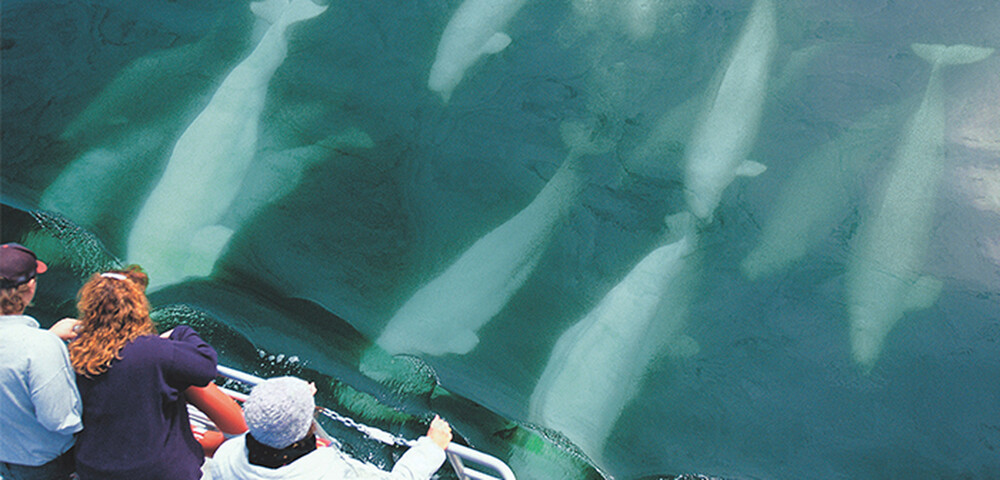A warming climate attracted the mysterious people. They appeared in Alaska 4,000 years ago, likely coming from Siberia, and moved quickly towards Hudson Bay's fruitful hunting grounds. Then the climate cooled swiftly, and by 800 B.C., all evidence of them disappears.
Once again, Hudson Bay's fauna is drawing people to its famed town, Churchill, MB, although this time they knowingly race a changing climate, which is shifting catastrophically fast. So among the tourists wishing to spy the largest land predator or swim with beluga whales, scurry scientists.
For decades, University of Manitoba researchers have studied how Arctic systems react to, and drive, ecological change. The world's largest sea-ice research team investigates everything from microscopic creatures living in ice, to predators roaming the land, sea and air. For the first time, they and their collaborators have synthesized their work into a comprehensive and interactive format: Expedition Churchill: A Gateway to Arctic Research, an e-book app you can download and explore anywhere.
This unique public outreach program that enlightens us on the region's scientific significance and the changes underway, provides the context for us to understand how we can collectively meet the challenges and opportunities that climate change affords the region, and the world.
"Climate change is arguably one of the most significant challenges our civilization has ever faced," says Distinguished Professor David Barber, Canada Research Chair in Arctic System Science at the U of M. "The Expedition Churchill outreach program allows us to bring cutting-edge climate research to the public and to policy-makers who ultimately have the responsibility to create and enforce policies which will stabilize our climate system, and hopefully avoid the most harmful impacts of our changing climate."
When the U of M launched this in late 2018 with its partners (VIA Rail, the Town of Churchill, the Churchill Northern Studies Centre, Assiniboine Park Zoo and Travel Manitoba), it did so at the train station in Winnipeg because Expedition Churchill involves a wrapped Via Rail dining car [exterior and interior] that promotes the e-book app to travelers, virtually allowing scientists to inform and entertain while en route to Churchill and beyond.
"It's like a rolling research station," Colin Ferguson, president of Travel Manitoba told the Winnipeg Sun. "It takes a little while to get to Churchill by train, [and] this is a great way to learn more about Manitoba's north and the impact [of] climate change."
A variety of media resources complement the e-book chapter content, including videos, audio clips and interactive infographics. A resource section, acronym index and acknowledgements are included at the end of the e-book.
"As we move forward as a society," reads Expedition Churchill, "it's becoming increasingly important that we make better connections between the people who understand how natural systems work (like scientists, Inuit and local experts) and the politicians, policy-makers industry and other organizations who use this knowledge. This sharing is essential if we are to make positive decisions about how we move forward."
The free e-book is available to download for mobile and tablet (Apple and Android) and desktop formats, by visiting www.expeditionchurchill.ca



